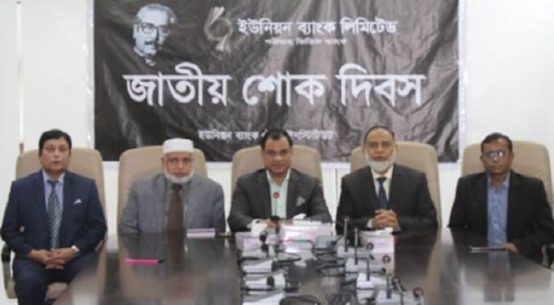Leading int’l experts termed Blue Economy as economy of the future while speaking at the round table titled ‘Blue Economy: Government, Business, and Science for a Sustainable Future’, organized today, November 22 during Atomexo 2022 being held in Sochi of Russia.
The round table was participated by the experts from India, Egypt, UAE and Russia. They discussed outlook and challenges for the development of the ocean economy. Speakers underpinned ocean economy’s global and cross-border nature, and opined that it could become a platform for cooperation between the government, business, and science.
The “Blue Economy” includes traditional and emerging industries like shipping, port infrastructure, shipbuilding and ship repair, marine construction and dredging, offshore gas and oil production, marine R&D and education, fishing and seafood processing, etc.
The assets of the world ocean are estimated to be worth US$25 trillion. The “Blue Economy” supports lives of more than 3 billion people and is the 7th largest economy in the world which is growing annually and is expected to reach US$ 3 trillion by 2030.
Natalia Stapran, Director, Department of Multilateral Economic Cooperation and Special Projects of Russia’s Ministry of Economic Development, and Nikolai Shabalin, Executive Director of Lomonosov Moscow State University Marine Research Center, discussed on issues of international cooperation in the field of “Blue Economy”, environmental management of marine areas, financing and digital aspects of water projects.
Mohamed Ahmed Said, Professor of Physical Oceanography of the National Institute of Oceanography and Fisheries (Egypt), spoke about the experience of Egypt and other African countries in the field and shared the most important aspects of the development of the “blue economy” and noted, “Maintaining a balance between economic development and the sustainability of marine ecosystems is extremely important when investing in projects of the “Blue Economy” such as sustainable fishing, aquaculture, marine renewable energy sources, and marine transport.”
“It is worth supporting developing countries so that they can adopt environmentally oriented approach in management of marine resources.”
Rudra Prasad Pradhan, Associate Professor, Department of Humanities and Social Sciences of the Birla Institute of Technology and Science, India spoke about the experience of India, one of the pioneers in the development of the “Blue Economy”. He informed, “Indian Ocean is spread over 70 million sq.km. It is the sea space connecting with 40 countries, a major oil supply and trade lane.”
“Sitting in the middle of Indian Ocean, India looks at seas and oceans as crucial platform in sharing experience and collective economic growth.” Raj Jit Singh Wallia, Deputy Chief Financial Officer of DP World (UAE), said “The priorities of DP World, which contributes a lot in the development of the “Blue Economy”, includes safeguarding ocean health, preventing pollution, and protecting biodiversity.”
“For Rosatom, the “Blue Economy” is of great importance, especially in the development of the Arctic. It is important to find a balance between maximizing economic benefits and preserving the biosphere of the region. Besides, it is necessary to find mechanisms to team up science, government, and business to develop a model of economic development not only in the Arctic, but also in other maritime spaces,” said Yekaterina Lyakhova, Director for Business Development of Rosatom.
The round table was organized by Rusatom Cargo, Rosatom’s logistics integrator. The company is developing the Eurasian Container Transit project aimed at creating a transit container cargo transportation service between Europe and Asia via the Northern Sea Route (NSR).

